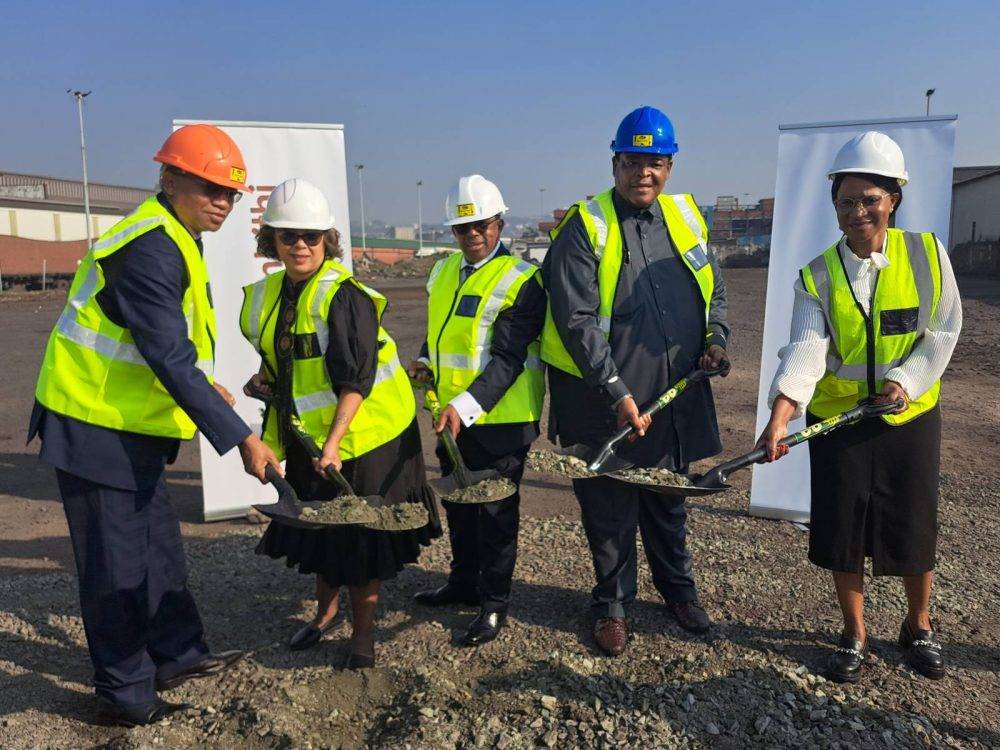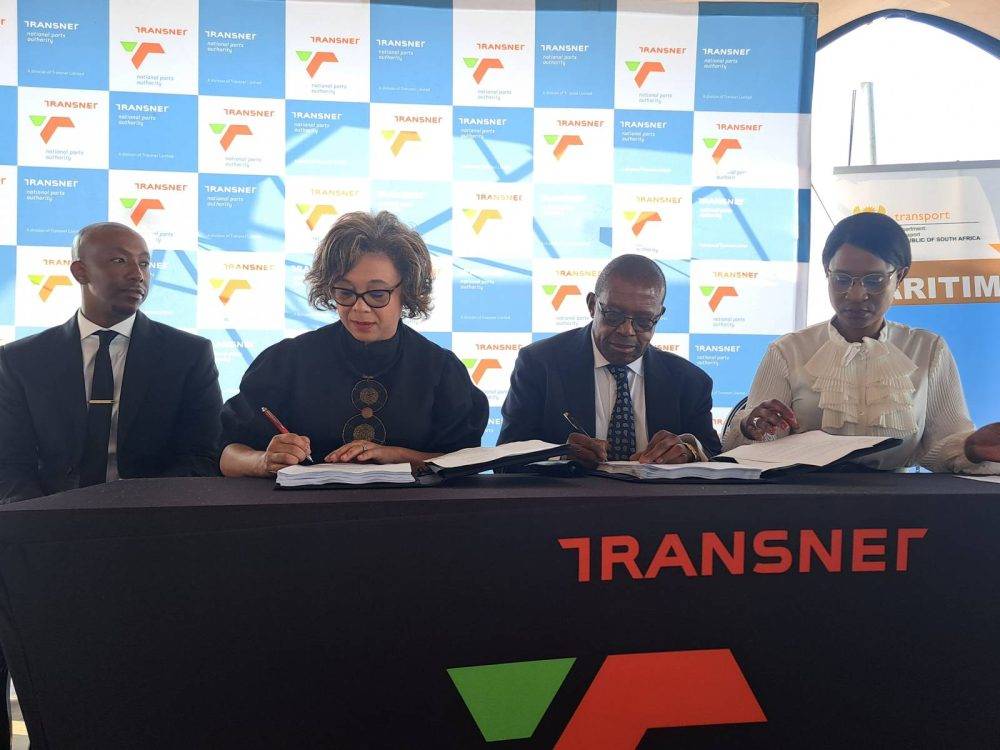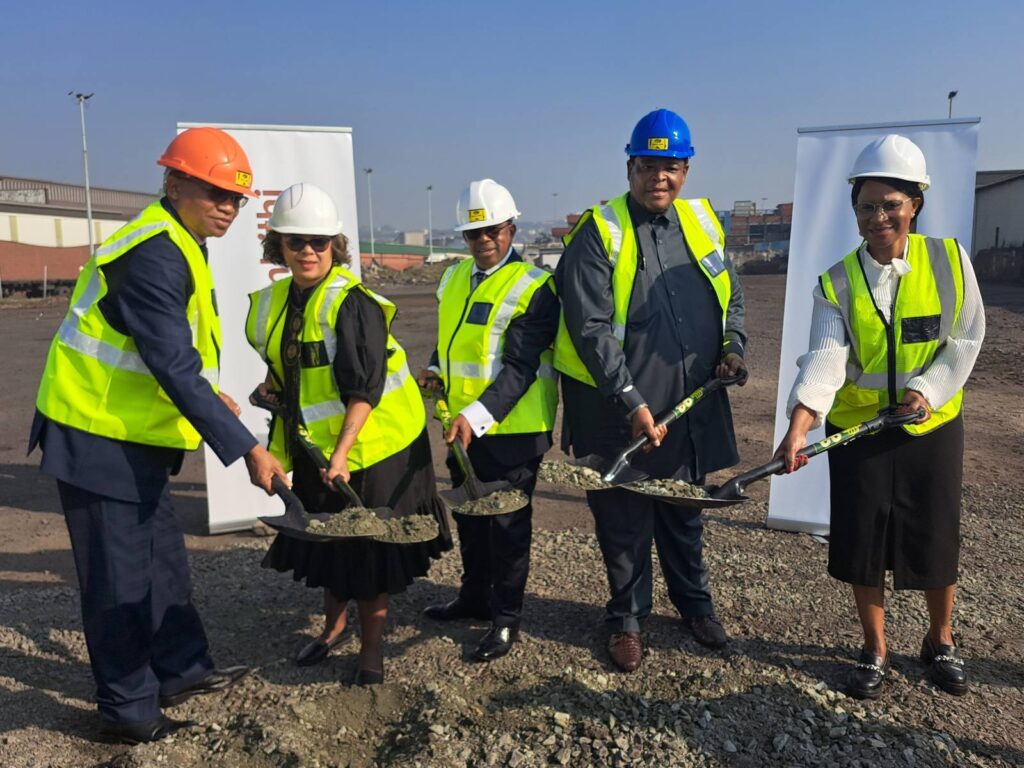
vinegarSouth African entrepreneur and Mnambithi Group chairman Vusi Mazibuko says the signing of a terminal operation agreement with Transnet for the new R1.1 billion liquid bulk terminal at the Port of Durban is a dream come true and a milestone in his business journey.
Speaking at a signing and ground-breaking ceremony to mark the start of the construction phase of the project at the port on Thursday, Mazibuko, 68, said it had taken 10 years of entrepreneurial spirit and perseverance to get the project off the ground.
“Today's signing ceremony marks the culmination of a journey that began almost 10 years ago when I went to Transnet with a model of what I thought the terminal should look like,” Mazibuko said.
“It was the beginning of a very difficult journey and our mission from the very beginning was to start by developing a strategy to be able to transport and store it. [liquid bulk cargo] “If we wanted to succeed in the shipping industry, which is a new sector for us, we needed to cover the entire value chain,” he said.
The terminal, which will be built in one phase, will have the capacity to store 100,000 cubic meters of liquid bulk cargoes, including imported edible oils, caustic soda and phosphoric acid, which will supply other parts of Africa as well as local markets such as pulp and paper manufacturers and mining companies.
Transnet is leasing the land at Maidon Wharf to the companies under a 20-year agreement that will commence when the terminal opens, and 80 percent of the facility's storage units are already rented out to companies wanting to use its services.
Mazibuko recalled a “surprise visit” he made to Transnet's offices to propose building the terminal.
“It was a very ambitious plan, but we knew the space was full of potential and there was huge growth potential. We knew the barriers to entry were very high, but we thought we were really up for the challenge,” he said.
“But deep down, because of my age, I wanted to be an agent of change in the country, especially in the maritime sector,” he said.
He said the group bought the bulk chemical tanker Bow Cecil five years ago and has transported more than one million tonnes of cargo since then. Sasol and Sappi are its blue-chip customers.
“Achieving this milestone has encouraged us to work further towards setting up the terminal. I would like to highlight that thanks to the guidance of the stakeholders present here today, we have reached a new landmark stage in our journey,” he said.
But Mazibuko said it was important that state-owned companies like Transnet were sensitive to the vision of entrepreneurs.
“There are many organisations like us and we hope to receive guidance and support. It hasn't been easy but there have been lessons learnt. If you are an entrepreneur and want to set up a business like this you need to know the compliance, the bureaucracy and the rules of the game because we really want to cut in and get what we want,” Mazibuko said.
“But I would also like to ask the TNPA [Transnet National Ports Authority] “I want them to take care of businesses like ours — entrepreneurs with dreams and goals,” he said.
Mazibuko has had many lively discussions with Transnet CEO Michelle Phillips about his ambitions over the years, when he first approached Transnet and Phillips was working as general manager of commercial operations.
“It's interesting that when I started this journey, Michelle was the first person I met at TNPA and today, in a strange twist of fate, we actually arrived at the same point together,” he said.
He and his team took Nelson Mandela's words “Winners are dreamers who never give up” as their mantra and worked tenaciously to achieve their ultimate goal.
“One of my colleagues asked me, ‘What keeps you going?’ and I replied, ‘Every time I come out of a meeting with TNPA or TNPT, [Transnet National Port Terminals]”There was always hope for a path I could follow and that door was never closed forever,” he said.
“Instead of being rejected, we were encouraged to continue on our journey. I would like to encourage aspiring entrepreneurs like us that opportunities abound at Transnet. Don't accept any rejection and look on the bright side. If you look at Munambiti where we are today, it is clear that this is a land of dreams and hopes,” Mazibuko said.
Mr Phillips said at the launch that he and Mr Mazibuko had been at “fray” over the years over his plans for the terminal because of his strict adherence to legal requirements. He said the project's environmental impact assessment was approved two years ago, clearing the way for the deal to be signed.
“We celebrate empowering Black-owned businesses and once again increasing the participation of Black-owned organizations in this sector. We will continue to break down barriers in this way. We must embrace new entrants in our industry. We must transform our industry,” she said.
“We are incredibly proud to have a 100% black-owned company operating at the port and to formally partner with Transnet. It has been a very ambitious project from the start, but also an achievable one,” she said.
“It's been a long journey and it hasn't been easy, but it's been worth it. As we move forward with the lessons we've learned, we need to try to shorten the timeline so people have access to our business and this industry,” Phillips said.

TNPA chairman Tsokolo Ntshotsho said the project would be the “most significant and transformative” investment in the country's ports system.
“This project between Munambiti and TNPA is a fantastic achievement that shows what can be achieved when government and the private sector work together,” Nchoncho said.
Ntchotcho said TNPA and Munambiti Terminals had been working hard on planning and developing the project for the past two and a half years.
“Much of that effort has been successfully concluded with the Terminal Operating Agreement that we are celebrating today and we look forward to this very substantial transformation initiative in the liquid bulk industry in the region, and across South Africa,” he said.

